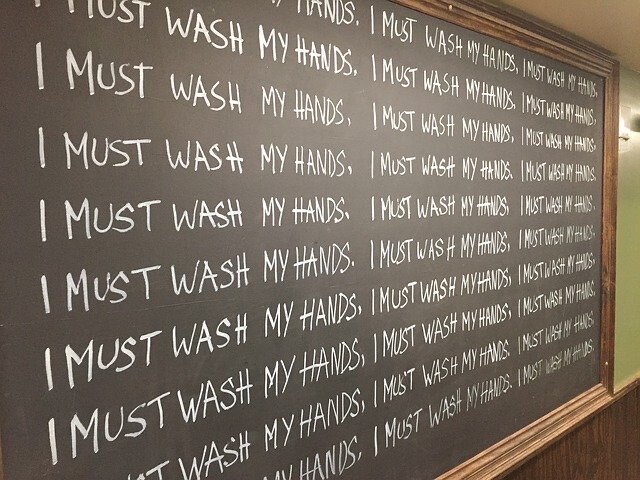As many of us begin our second month of sheltering in place to help stop the spread of the COVID19, it’s important to focus on what we can do to reduce the spread of germs. I’m not a doctor and I’m not with the CDC. The information I’m sharing in this article is based on information on the CDC website, the U.S. Department of Agriculture and precautions I had to take during chemotherapy when my immune system was weakened by my cancer treatments. I can’t guarantee you won’t get sick, but during these times of uncertainty, it’s reassuring to know you are being proactive.
Wash your hands often with soap and water. Make sure you wash the fronts and backs of your hands, in between your fingers and your wrists (roll up those sleeves). You must wash your hands for at least 20 seconds (the time it takes to sing the Happy Birthday song twice). Rinse your hands and dry them with a clean towel.
Check out this link: https://www.cdc.gov/handwashing/when-how-handwashing.html. It will remind you of when and why you need to wash your hands. It also contains tips for using hand sanitizer correctly.
Do not cover your mouth and nose with your hands when you cough or sneeze. Cough/sneeze into the bend of your arm. Always throw tissues away after use and wash your hands.
Don’t touch your face with your hands.
Maintain personal hygiene.
Be sure to clean items you touch with sanitizing wipes, soap and water or vinegar and water. This includes doorknobs, light switches, the handle of your toilet, telephones, computers/laptops/tablets, faucets, your wallet/purse, and computer carrying case/attaché case. Think about it - your purse, computer carrying case or attaché case goes most places you go. It gets thrown in the car, set on tables, counters and on the floor.
Be sure to wash surfaces like countertops, tables or desks where you set items coming into the house like your mail or shopping bags.
Close the lid of the toilet before flushing.
Store medicines in your kitchen and store your toothbrush in a UV sanitizer or in your bedroom to prevent germs from flushing the toilet from contaminating it.
After putting away your groceries or other shopping, wipe down counters or tables. Wash the tops of cans before you open them. Rinse fruits and vegetables with water - According to the U.S. Department of Agriculture coronavirus FAQ page, “We are not aware of any reports at this time of human illnesses that suggest COVID-19 can be transmitted by food or food packaging. ”If it makes you feel more comfortable, you can wash them with mild dish soap or a mild solution of hydrogen peroxide, but be sure to rinse well with cold water.
Wipe down the handles of brooms, mops, rakes and shovels.
Many of us spend a lot of time in our cars. Wipe down the interior of your car often and your door handles. Vacuum your trunk if you place grocery bags and other items in there.
While you are taking these safety precautions, it’s a good time to start your spring cleaning.
Decluttering helps keep surfaces cleaner, so if you don’t need it, donate it or throw it away.
If you are in an area that provides trash and recycling bins, only use those bins – do not place extra items out that your sanitation workers will have to handle – they are working during this time and we need to help them stay safe and well.
Vacuum and dust floors and furniture.
Wash or dry clean drapes/curtains (dryer sheets for dry cleaning work well in a pinch)
Wipe down walls and baseboards.
Clean out your closets
Clean out your refrigerator and pantry – checking expiration dates on foods or any medicines you keep in the kitchen cupboard (it’s safer to store medicine in the kitchen than the bathroom because of moisture).
Wash your windows if it’s warm enough outside.
Change kitchen towels and bathroom towels often. Microwave kitchen dish cloths for 30-35 seconds after each use to kill germs. Avoid using sponges.
Keep pet areas clean and wash your hands after touching your pets.
Don’t let dirty laundry pile up.









